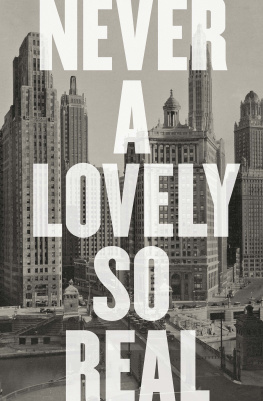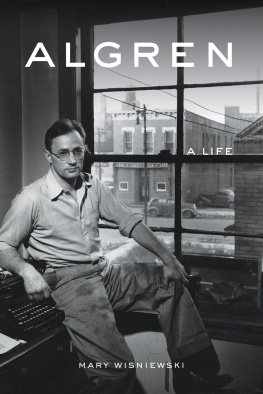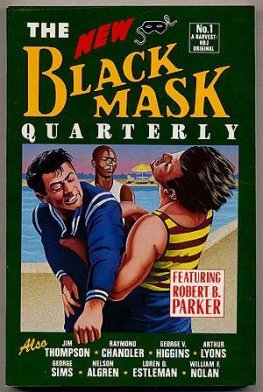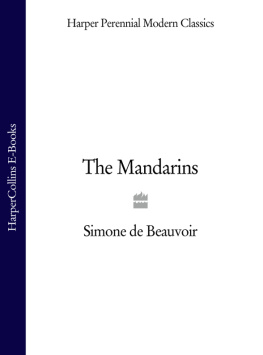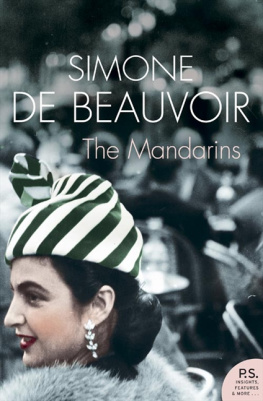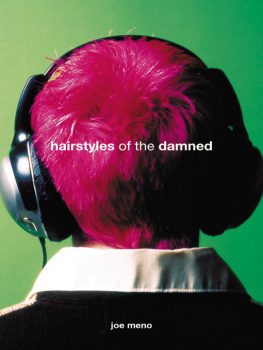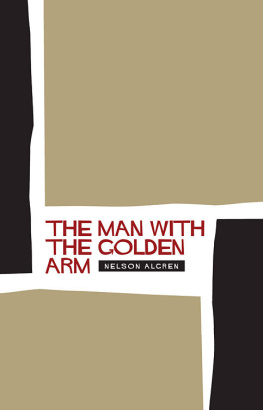NEVER A LOVELY SO REAL

The Life and Work of NELSON ALGREN
Colin Asher

Copyright 2019 by Colin Asher Bosio-Cady
All rights reserved
First Edition
For information about permission to reproduce selections from this book, write to Permissions, W. W. Norton & Company, Inc., 500 Fifth Avenue, New York, NY 10110
For information about special discounts for bulk purchases, please contact W. W. Norton Special Sales at specialsales@wwnorton.com or 800-233-4830
Book design by Chris Welch
Production manager: Lauren Abbate
The Library of Congress has cataloged the printed edition as follows:
Names: Asher, C., author.
Title: Never a lovely so real : the life and work of Nelson Algren / Colin Asher.
Description: First edition. | New York : W. W. Norton & Company, [2019] |
Includes bibliographical references and index.
Identifiers: LCCN 2018049775 | ISBN 9780393244519 (hardcover)
Subjects: LCSH: Algren, Nelson, 19091981. | Authors, American20th centuryBiography.
Classification: LCC PS3501.L4625 Z55 2019 | DDC 813/.52 [B]dc23
LC record available at https://lccn.loc.gov/2018049775
ISBN 9780393244526 (eBook)
W. W. Norton & Company, Inc., 500 Fifth Avenue, New York, N.Y. 10110
www.wwnorton.com
W. W. Norton & Company Ltd., 15 Carlisle Street, London W1D 3BS
To Nora and Dantefor keeps and a single day
A certain ruthlessness and a sense of alienation from society is as essential to creative writing as it is to armed robbery. The strong-armer isnt out merely to turn a fast buck any more than the poet is out solely to see his name on the cover of a book, whatever satisfaction that event may afford him. What both need most deeply is to get even.
Nelson Algren, writing in Nonconformity
I have said that nothing factual that I write or say will be as truthful as my fiction. The life, the opinions, are not the work, for it is in the tension between standing apart and being involved that the imagination transforms both.
Nadine Gordimer, accepting the Nobel Prize in literature
The worlds so big yet so small. Its one block.
Nasir Jones, on Olu Daras Jungle Jay
CONTENTS
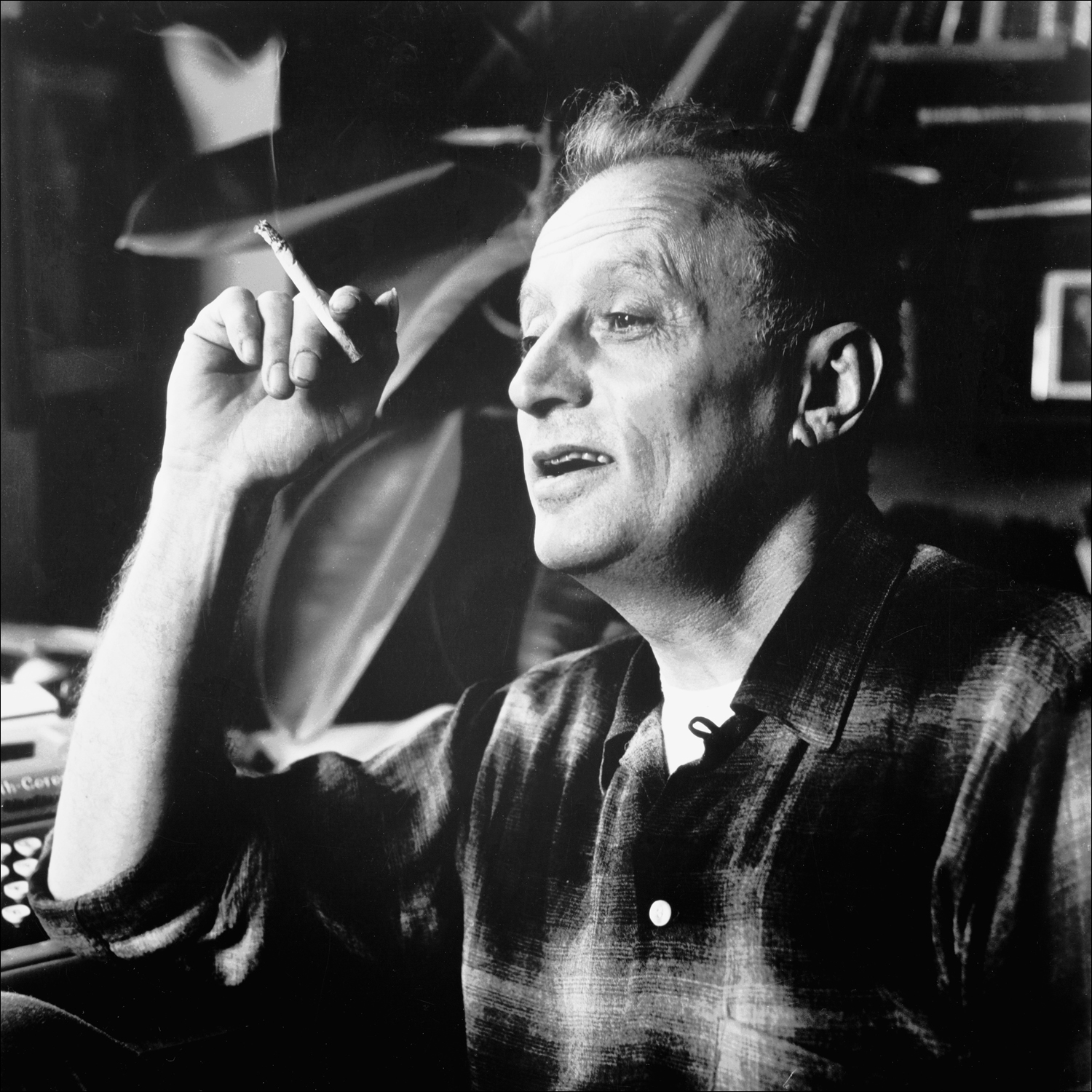
Nelson Algren in the early 1960s. Chicago History Museum, ICHi-068778; Stephen Deutch, photographer
T he first thing you should know about Nelson Algren is that he wrote like this:
The captain never drank. Yet, toward nightfall in that smoke-colored season between Indian summer and Decembers first true snow, he would sometimes feel half drunken. He would hang his coat neatly over the back of his chair in the leaden station-house twilight, say he was beat from lack of sleep and lay his head across his arms upon the query-room desk.
Yet it wasnt work that wearied him so and his sleep was harassed by more than a smoke-colored rain. The city had filled him with the guilt of others; he was numbed by his charge sheets accusations. For twenty years, upon the same scarred desk, he had been recording larceny and arson, sodomy and simony, boosting, hijacking and shootings in sudden affray: blackmail and terrorism, incest and pauperism, embezzlement and horse theft, tampering and procuring, abduction and quackery, adultery and mackery. Till the finger of guilt, pointed so sternly for so long across the query-room blotter, had grown bored with it all at last and turned, capriciously, to touch the fibers of the dark gray muscle behind the captains light gray eyes.
Algren went to great lengths to seem tough. He favored dark suits, affected a limp, and acted brashly when he had an audiencebut he could write about romantic relationships with uncommon nuance and insight:
Those first hours together had been no more than those of any side-street solitary, any bar-wise, woman-wise bookie falling in love with any brash young chick from the suburbs wearing white batiste.
It was autumn, but summer came back, a full week, just for them...
Marriage was a bit he had never regarded seriously, one bit in which he had never seen himself. Marriage, he had always felt, was a standing joke. He had mocked it. She had slipped onto her finger a ring that he might have found in a box of Crackerjacks. Its stones, as it were, were plastic dice. He had slipped it onto her finger intending mockery, a mock marriage; instead she had put her lips to it. The mockery failed. The summer air had married them.
Algren wrote nonfiction as wellessays, reviews, and articlesand when he turned his attention to social critique he produced insights so trenchant they remain relevant decades after they were written. He wrote these lines describing the United States, for instance, in 1953:
Never has any people possessed such a superfluity of physical luxuries companioned by such a dearth of emotional necessities. In no other country is such great wealth, acquired so purposefully, put to such small purpose. Never has any people driven itself so resolutely toward such diverse goals, to derive so little satisfaction from attainment of any.
Thanks to all that talent, Algren became very famous. He wrote eleven books, and millions of people bought them. His masterpiece, The Man with the Golden Arm , received the first National Book Award, earned a record sum when its paperback rights were sold, and was adapted for stage and screenits protagonist was played by Robert Loggia and Frank Sinatra, respectively. Algren also received the Time magazine award for the novel, three Pushcart Prizes, an O. Henry Award, and the American Academy of Arts (later the American Academy and National Institute of Arts and Letters) Award of Merit. His fourth novel was adapted into a film starring Jane Fonda, and a musical, and inspired the Lou Reed song Walk on the Wild Side.
Algren was influential as well, and if youre a fan of American literature theres a good chance he earned the respect of or inspired your favorite author. In 1940, Richard Wright called Algren the best writer of good prose in the U.S.A. Ernest Hemingway once said Algren was the second-greatest living American author, after William Faulknerand later said Algren had topped Faulkner . Ross Macdonald, Martha Gellhorn, Kay Boyle, Jimmy Breslin, Thomas Pynchon, Russell Banks, Betty Friedan, Rachel Kushner, and Don DeLillo have all expressed their admiration for Algrens work, and Cormac McCarthy told Algren, You were one of the people who influenced me to become a writer. Simone de Beauvoir wrote Algren into four of her books, and Hunter S. Thompson once told an interviewer, I admired Algren and still do. I thought at the time [1956] that no living American had written any two books better than The Man with the Golden Arm and A Walk on the Wild Side .
But despite Algrens talent, sales, and influence, his name has been obscure for decades because he forswore writing novels a few years after he became famousthat fact is tragic in its own right, but its doubly so because the cause of Algrens disillusionment and decline is being revealed in full only now.

